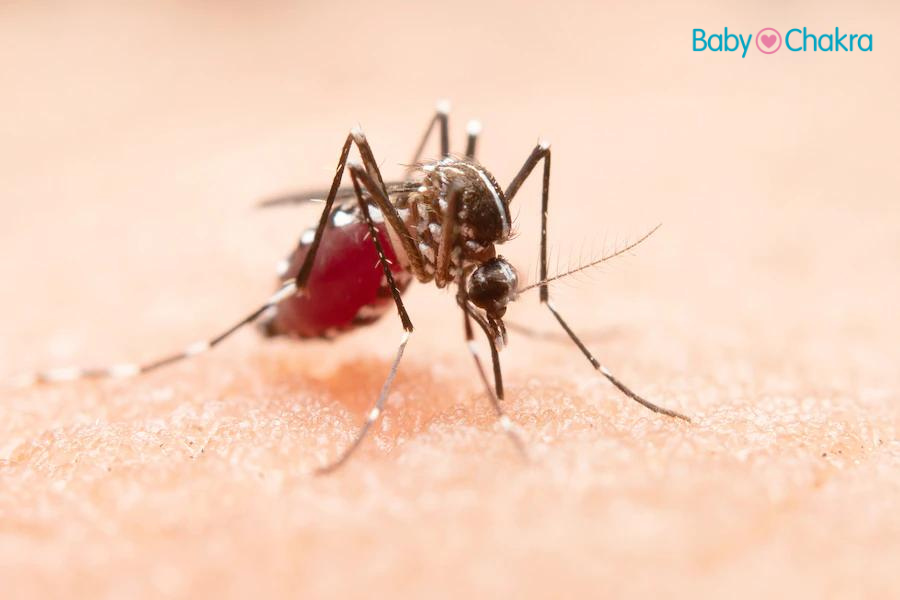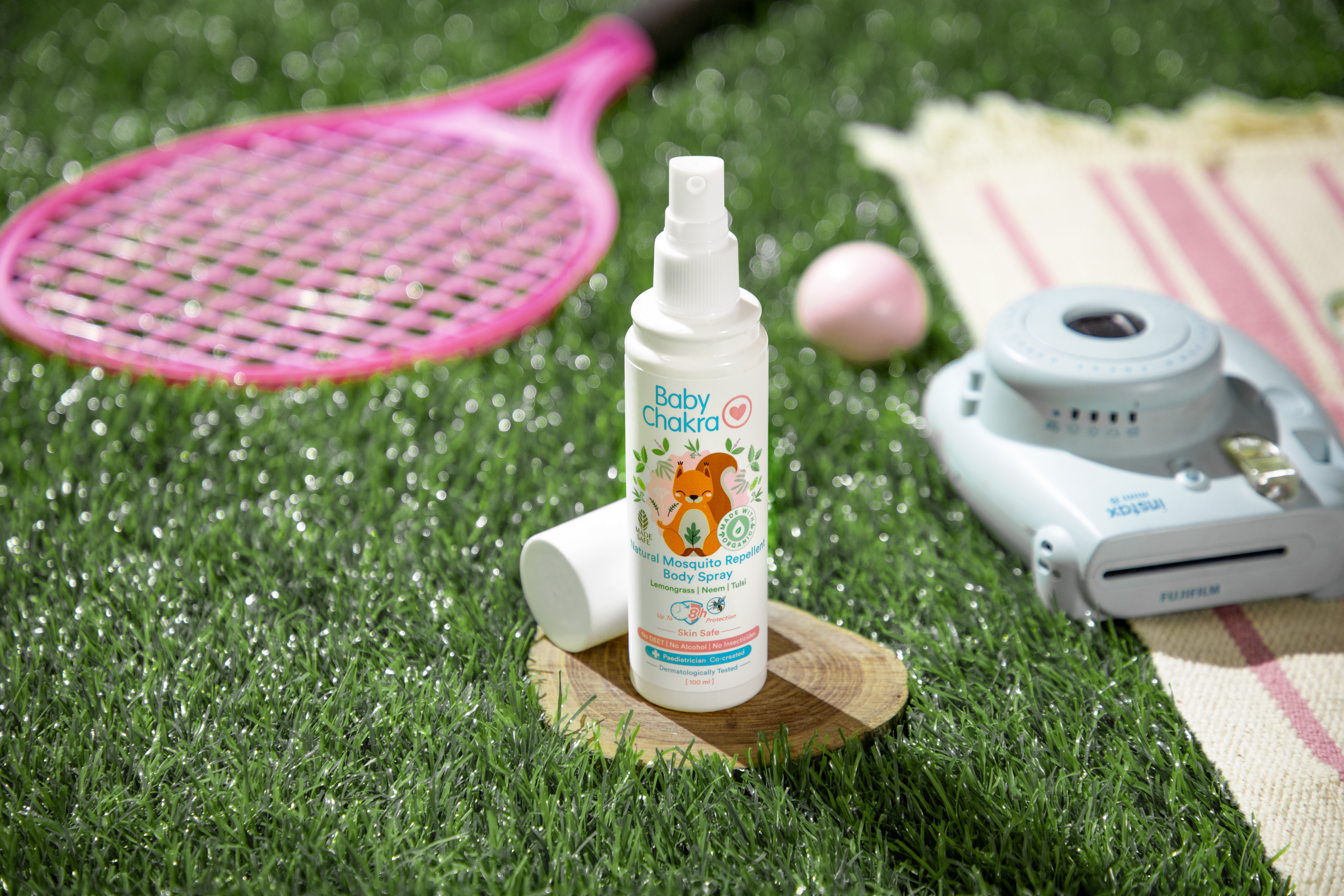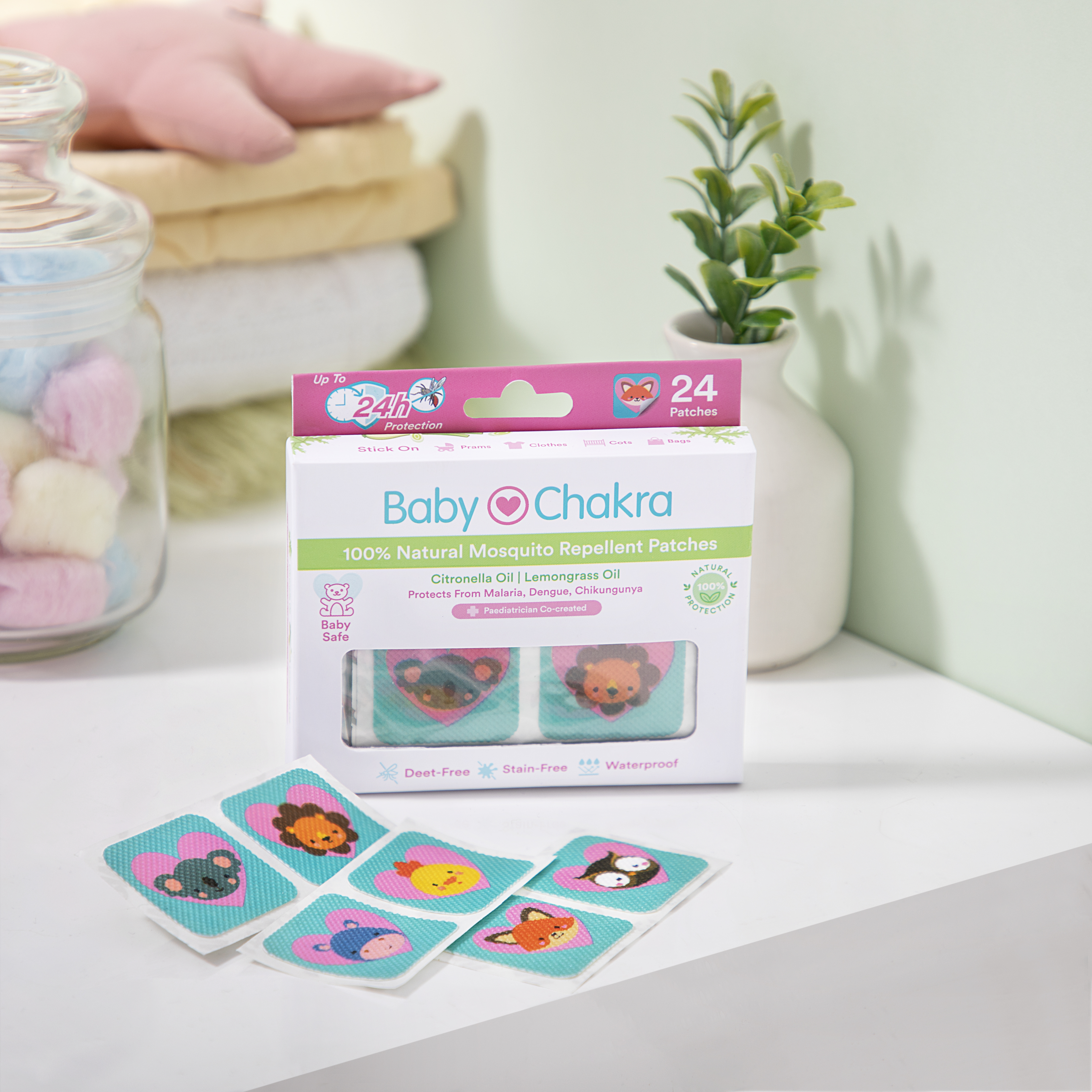
Give Your Child 8 Hours Of Effective Protection From Disease-Causing Mosquitoes. Here’s How
29 Aug 2022 | 3 min Read
Sayani Basu
Author | 607 Articles
The whine of a mosquito is probably the most annoying sound on earth. Plus, they are the carriers of the most deadly diseases such as Malaria, Dengue, Chikungunya, and Yellow Fever. Therefore, it’s important to safeguard babies from these pesky insects.
Besides carrying out regular spraying and fogging at home to safeguard your babies from mosquitoes, you can also try a natural mosquito repellent body spray that gives 8 hours protection from disease-causing mosquitoes.
Read on to know more.
What Are Mosquito Repellent Sprays?
Mosquito repellent sprays are the sprays that are applied directly to the skin. It evaporates on the skin and works by blocking a mosquito’s sense of smell, thereby preventing it from biting you.
There are two types of mosquito repellent sprays – chemical and natural. A chemical mosquito repellent spray consists of pesticides, mineral oil, DEET and synthetic fragrance that work together to repel the mosquitoes. However, these toxic chemicals can get absorbed into your child’s skin and can cause hazards like hormonal disbalance, neurological defects and so on.
Natural mosquito repellent sprays are the ones that are formulated using certified natural ingredients.
Why BabyChakra’s Natural Mosquito Repellent Body Spray Is The Best Protection Against Disease-Causing Mosquitoes
- This mosquito repellent body spray has been formulated with natural ingredients. It has been clinically proven to give your little one up to 8-hour of effective protection from the disease-causing mosquitoes.
- Unlike other mosquito repellent body sprays, it is free from toxins including synthetic fragrances that might lead to a wide variety of health issues in babies including hormonal imbalance.
- Co-created with paediatricians and mums, this Made Safe Certified and Ayush Approved spray is also free from Polyester and DEET which are mostly found in mosquito repellents and are not safe to be used on kids below two years of age due to their concentration.
- Formulated using natural and organic ingredients, it will not irritate your little one’s super-sensitive skin.
- Some of the benefits of our star ingredients are:
- Lemongrass oil: Lemongrass oil is loaded with effective mosquito repellent properties and ensures adequate protection for your little ones.
- Aloe vera: Aloe vera is known for its healing and soothing properties that hydrate the little one’s skin.
- Tulsi: Tulsi is a natural mosquito-repellent and antimicrobial agent that keeps mosquitoes away.
- Neem leaf: It is enriched with antifungal and antibacterial properties and protects against skin inflammation.
- Organic coconut oil: It soothes your child’s skin and forms a protective layer on the skin, keeping mosquitoes at bay.
6. Easy to use: The BabyChakra mosquito repellent spray is easy to use. Shake the bottle before use and spray directly on your little one’s skin arms, hands and legs. For face application spray it on your hands and then apply it on your child’s face.
In addition to this, you can also try BabyChakra’s mosquito repellent patches. These too have been made with natural ingredients and are toxin and DEET-free and easy to use. All you need to do is stick one of these patches in the child’s surroundings or clothing.
Cover Image Credit: freepik
A


Suggestions offered by doctors on BabyChakra are of advisory nature i.e., for educational and informational purposes only. Content posted on, created for, or compiled by BabyChakra is not intended or designed to replace your doctor's independent judgment about any symptom, condition, or the appropriateness or risks of a procedure or treatment for a given person.


